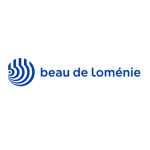In November 2020, the expressions ‘Linge Basque’, ‘Absolue Pays de Grasse’ and ‘Pierre d’Arudy’ joined the small family of geographical indications for industrial and handicraft products. To date, 12 geographical indications have been approved by the French IP office, INPI. There are, however, two new applications for registration: ‘couteau de Laguiole’ and ‘poteries d’Alsace’, for which public inquiries for the registration of geographical indications have just been opened.
A geographical indication is a distinctive sign. It assures the consumer of characteristics attributable to that geographical origin, which is a guarantee of the quality and authenticity of the product. It makes it possible to link a product to its origin. Its purpose is to protect pre-existing know-how and production.
Geographical indications include in the broadest sense protected designations of origin (PDO), but also controlled designations of origin (AOC), protected geographical indications (PGI) and geographical indications for liquor (GI). PDOs, PGIs and GIs for liquor are all also regulated at EU level. These regulations replaced national regulations, which the CJEU affirmed in the decision Budějovický Budvar (CJEU, September 8 2009 -C 478/07). It stated that the purpose of the European regulation was not “to establish, alongside national rules which may continue to exist, an additional system of protection for qualified geographical indications,…, but to provide a uniform and exhaustive system of protection for such indications”.
At French national level, there are also geographical indications of industrial or artisanal products (IGPIA), which are not subject to European regulations.
In French law, an IGPIA is defined in Article L.721-2 of the IP Code as the “name of a geographical area or of a specific place used to designate a product – other than agricultural, forestry, food or seafood products – which originates from such area and which possesses a given quality, a reputation or other characteristics attributable mainly to this geographical origin”. This category of geographical indication was created by the so-called ‘Loi Hamon’ of March 17 2014. Previously, only natural, agricultural and wine products could benefit from the national protection conferred on geographical indications.
The establishment of this specific geographical indication dedicated to manufactured products and natural resources is intended for companies to promote their products and their know-how, especially for export, and to protect themselves against the misuse of geographical names.
This geographical indication is subject to a special approval procedure provided for in Article L.721-3 of the French IP Code. Contrary to the other official signs of quality and origin administered by the INAO, the French regulatory body for agricultural products, it is the INPI that rules these particular appellations.
Once the geographical indication has been approved, the concerned products, which comply with the specifications attached to the indication, may be marked with the name of this indication. IGPIAs are also referenced in a database of their own, that is freely accessible on the INPI website.
In addition, Article L.722.1 of the French IP Code provides that any violation of an IGPIA constitutes counterfeiting. It is therefore prohibited to “produce, offer, sell, place on the market, import, export, tranship, use or hold for these purposes goods whose presentation infringes or is likely to infringe a Geographical Indication.”
The Order of November 2019, which transposed the 2015 Directive, incorporated into French law absolute and relative grounds for refusal or cancellation of trademarks infringing geographical indications for manufactured products and, more broadly, official signs of quality and origin.
IGPIAs therefore now constitute, together with the new Article L. 711-2 (9°) of the French IP Code, an absolute ground for the cancellation or refusal of a trademark. The INPI will have the possibility to refuse a trademark registration if it infringes a geographical indication taken in its broadest sense. The INPI could previously only refuse the registration of a trademark if it was “of such a nature as to deceive the public as to the nature, quality or geographical origin of the product or service.”
As far as relative grounds are concerned, the IGPIA have been added to the list of prior rights which may allow for the cancellation of a registered trademark or the refusal of an application for registration. This provision, which can be found at 5° of Article L.711-3 of the IP Code, had already been introduced into the IP Code in 2014 by the Loi-Hamon law.
Since the entry into force of the order, IGPIAs have been now included in the list of prior rights that can be invoked in the new opposition procedure (Article L.712-4 of the Intellectual Property Code).
The protection of geographical indications for manufactured products stops for the moment at the borders of France, but it may in the future extend to the borders of Europe, as the European Commission is studying the extension of the protection of geographical indications to non-food products.
Read the full article here on the firm's website.
Aurélia Marie
Partner, Cabinet Beau de Lomenie












